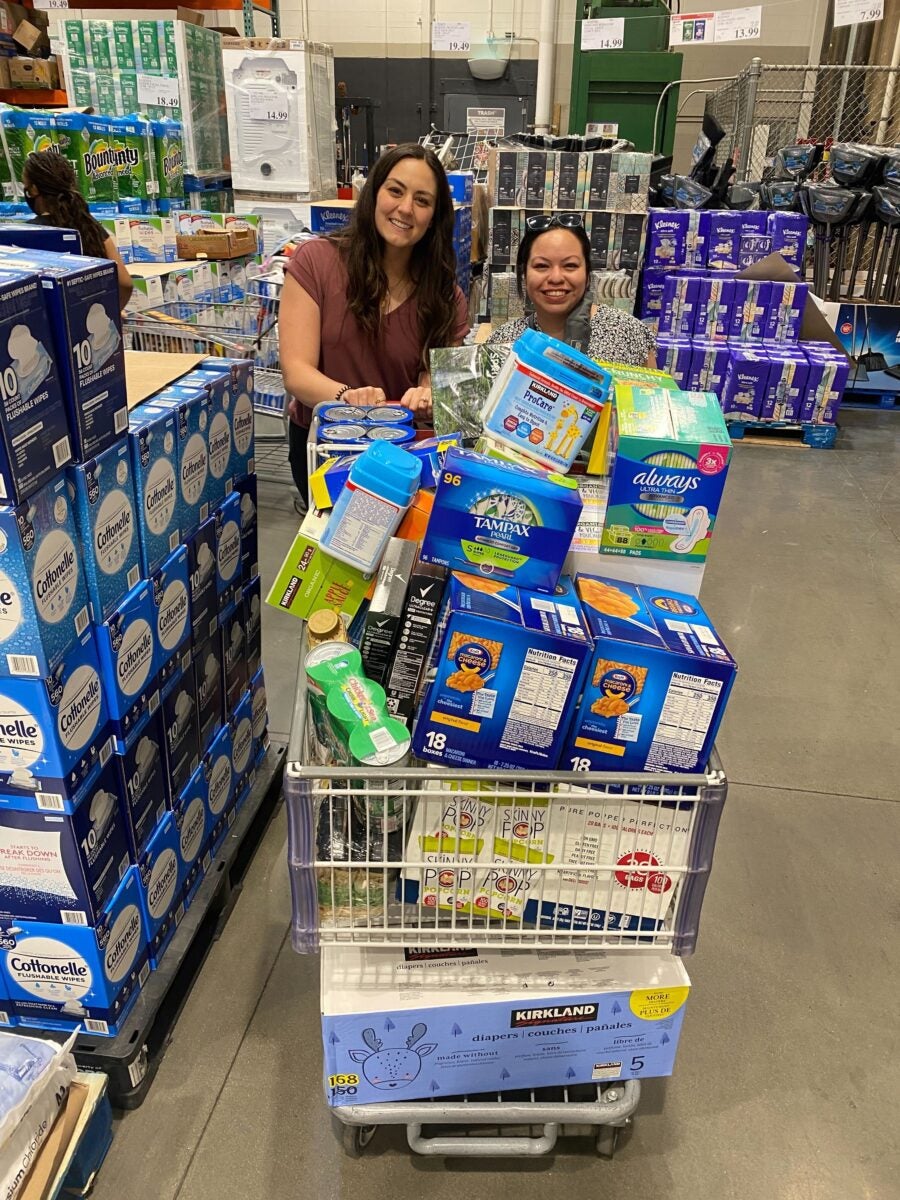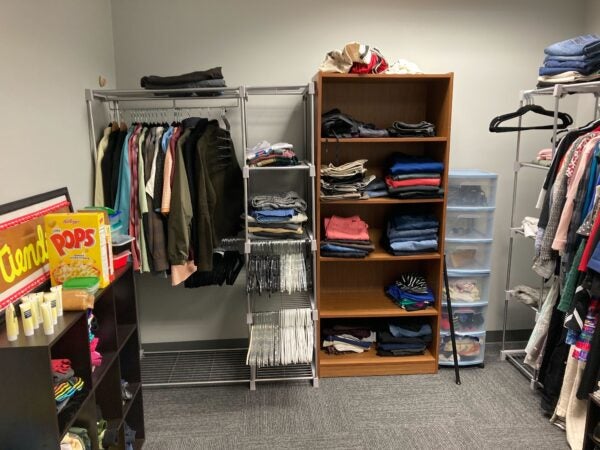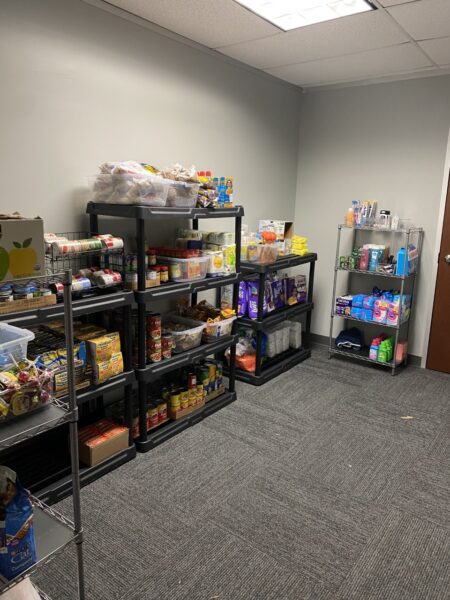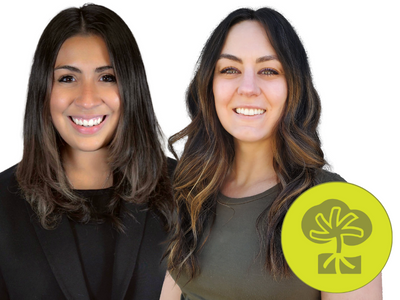Miranda Best Campos, Steve Hicks School (SHS) MSSW candidate, still remembers what was running through her mind while she filled out her field application: “I had no idea what to expect . . . so I filled out immigration, publication education, nonprofit, I just kind of ticked off my boxes. I knew there was a RAICES office in Austin, so I took a long shot. I wrote in the comment box, ‘I don’t know if this is an option, but I would love RAICES; this would be one of my top choices.’”
Little did she know that working with an SHS student was also the top choice of Miriam Camero, the Vice President of Social Programs at RAICES, another Longhorn who got both her BSW and her MSSW from UT Austin, and who has long wanted RAICES to have an established internship with SHS.
Miranda has paved the way by being the first intern from SHS and UT Austin to work with RAICES under the Case Management Program. As much as she was guiding Miranda, Miriam was also guided herself as a first-time field instructor. Joan Asseff, Clinical Assistant Professor at SHS, helped to co-lead Miranda.
Establishing “Roots” at RAICES
RAICES is the Spanish word for “root,” but it also stands for the Refugee and Immigrant Center for Education and Legal Services. The organization consists of three service departments: legal, social programs, and advocacy. The work that Miranda and Miriam pursued together has been in the social programs department.
RAICES serves clients from diverse geographies—most recently, Afghans, Cubans, and Ukrainians have been venturing to the San Antonio-based headquarters. The social programs department handles primarily humanitarian-based immigrations claims: visa challenges, asylum, and unaccompanied minors, to name a few. They also work with detainees and offer a fixed, low-cost program to help with an array of immigration challenges. All of this work can be complex, since, as Miriam puts it, “We’re not in a controlled setting. We’re literally dealing with life.”
Miranda first became interested in the work of RAICES in 2018, when families were detained at the border. Immigration is one of many interests for Miranda; she’s a dual student with SHS and the LBJ School of Public Policy, on the APP track and studying mezzo-macro work. She is interested in policy and the local government efforts that impact immigrant families—specifically the ground-level efforts that support them.
While Miriam has a social work background, she shifted course to pursue a law degree and eventually entered family law. However, during her years as an attorney, she often gravitated to social work roles, realizing that was where she was most comfortable Miriam became the first case manager for RAICES and had the opportunity to watch the organization grow exponentially. She was excited about the First Annual Social Work and Law Symposium and wants to explore how interns can be integrated into immigration work.
Leaving Her Mark as an Intern

During her time at RAICES, Miranda completed some remote projects: doing temporary case management work through RAICES Canopy Hotline and processing intakes with minors at the Carrizo Springs detention center over Zoom. Both of these projects taught her much about the back-end work that goes into running an immigration and refugee center. As Miranda says, “I was more exposed to the systems at play, the policies that were impacting these families.”
Miranda’s favorite project, of which she is most proud, is her macro project: building a new and improved client supply room that includes clothing, food items, and other necessities that are specific to client preference. She helped RAICES create a more sustainable program and worked directly with the case manager in Austin.
Miriam says that Miranda has already left her mark on the organization: “[She is] establishing a legacy within RAICES.


Empowering Introspection, Bias Awareness, and Self-Care
During her time at RAICES, “Miranda did such a great job of being introspective, shifting sails as much as she did,” praises Miriam. “She was really able to stand up to the role and responsibility and asked amazing questions. This was something that naturally she was very talented in, but then she also had a quiet hunger, to try to be better than she could be.” Miriam says that her clients felt safe and guided by Miranda.
Miriam and Miranda both believe that introspection is a vital part of social work. For Miriam, her time as a student at SHS was marked by introspection: “You learn about your biases. You learn the things that trigger you, what your take on social work is, what your approach with clients is. That’s something that I can never really learn elsewhere. You’re not only learning these concepts, but you’re also growing as a professional.” Miranda and Miriam agree that introspection helps social workers be present with the client and also allows them to dig deeper in understanding their own privileges and biases.
For Miriam and Miranda, both Latina women whose ancestors faced immigration, practicing self-care is as vital as introspection. Working in immigration, they explain, the odds are always against you as a professional and against the client. “When you are triggered, you need to practice that self-care,” says Miriam. “You need to know when to step away and practice boundaries for yourself. So as much as it is a great thing to advance with the client, professionally, how are you taking care of yourself?”
Introspection, being aware of one’s biases, and practicing self-care can make space for the client to empower themselves. When social workers are present and are willing to learn, the client can share their own knowledge about their customs and family roles. Miriam and Miranda have both experienced immigrants teaching them about their culture’s foods, traditions, and family roles. In Miriam’s words, “Immigration always keeps you learning no matter what.” Through the partnership between SHS and RAICES, our students will keep learning and impacting the world around them for the better.


